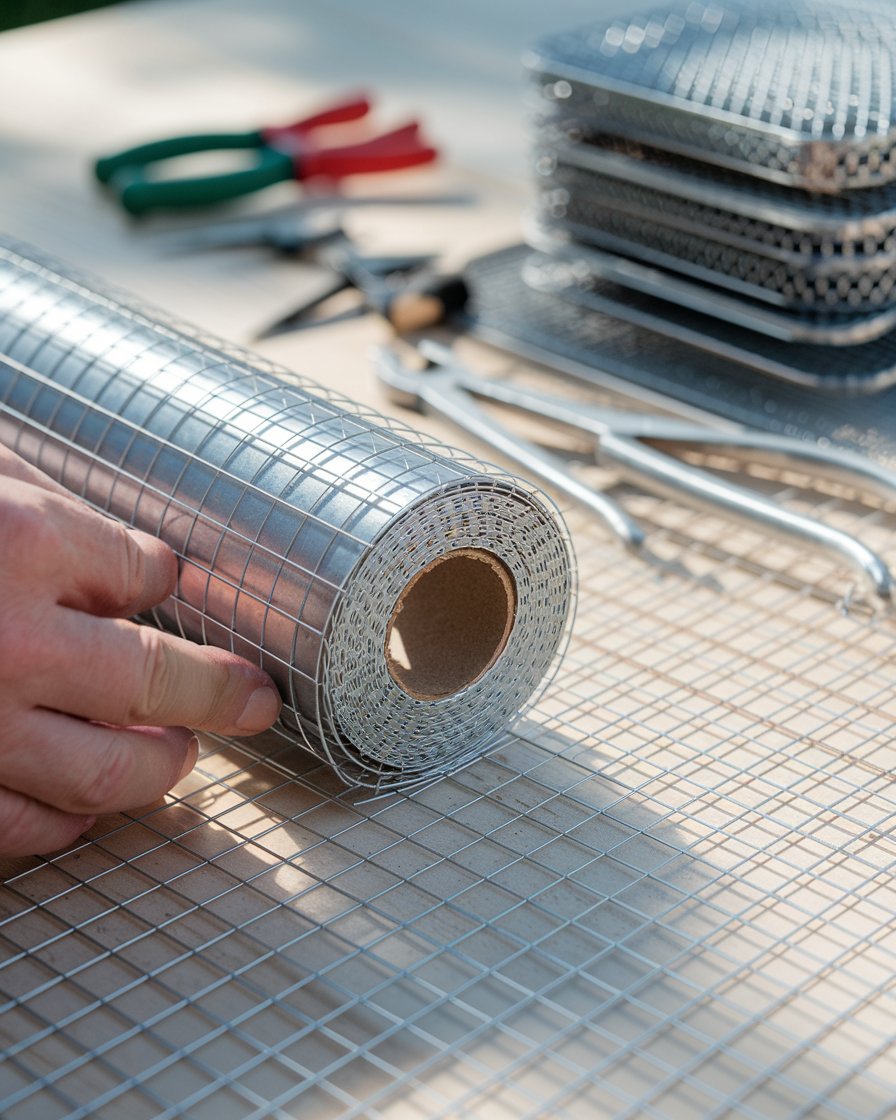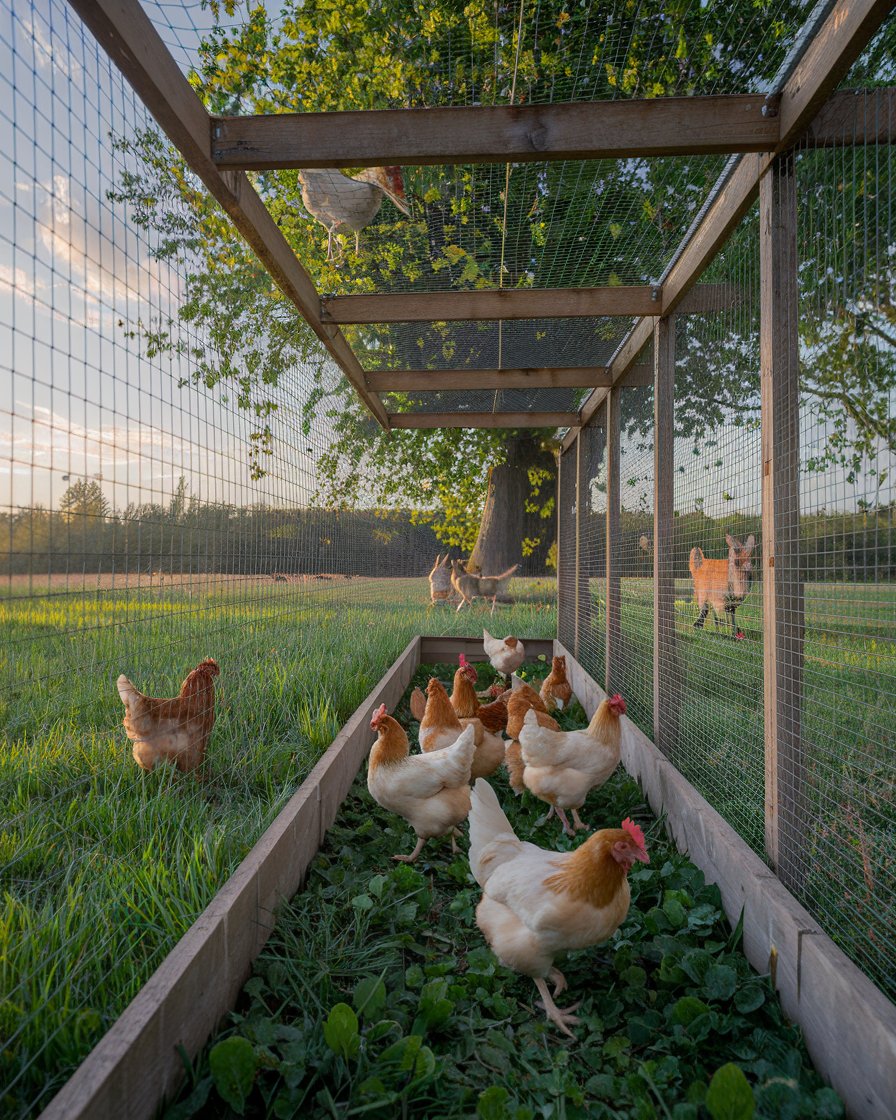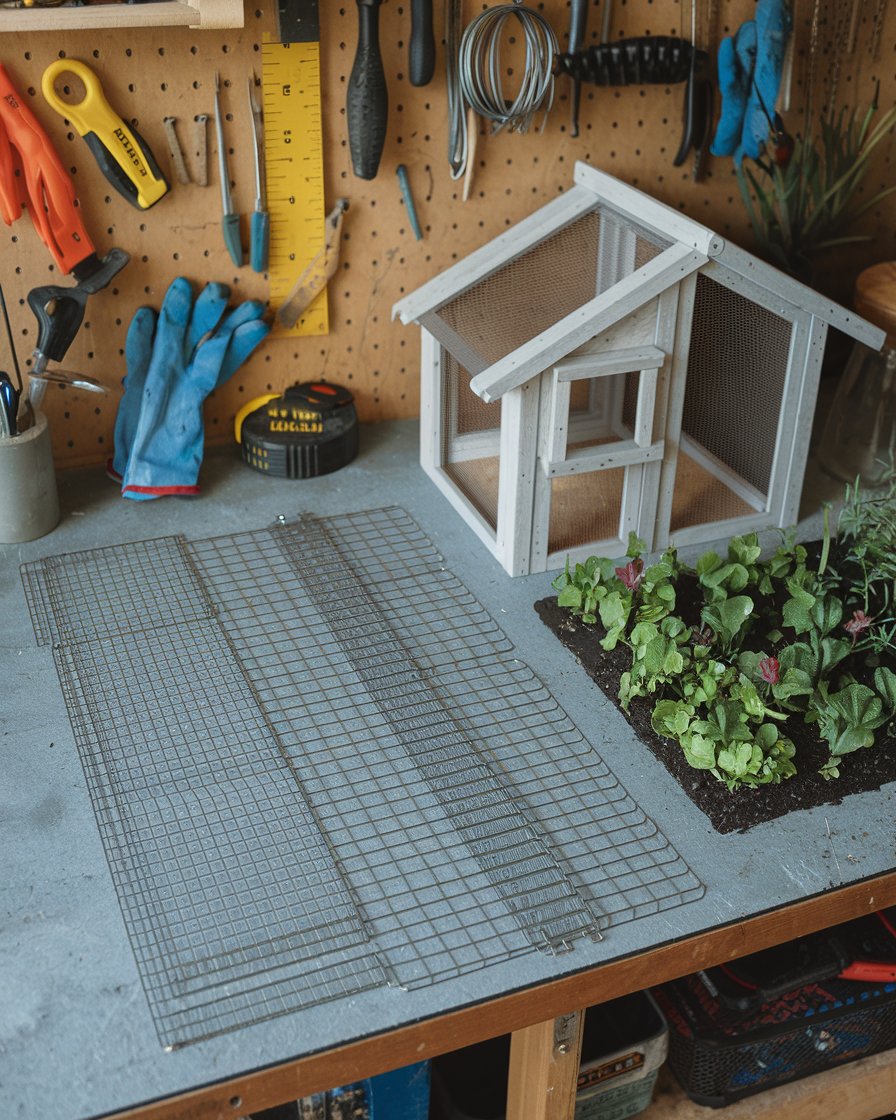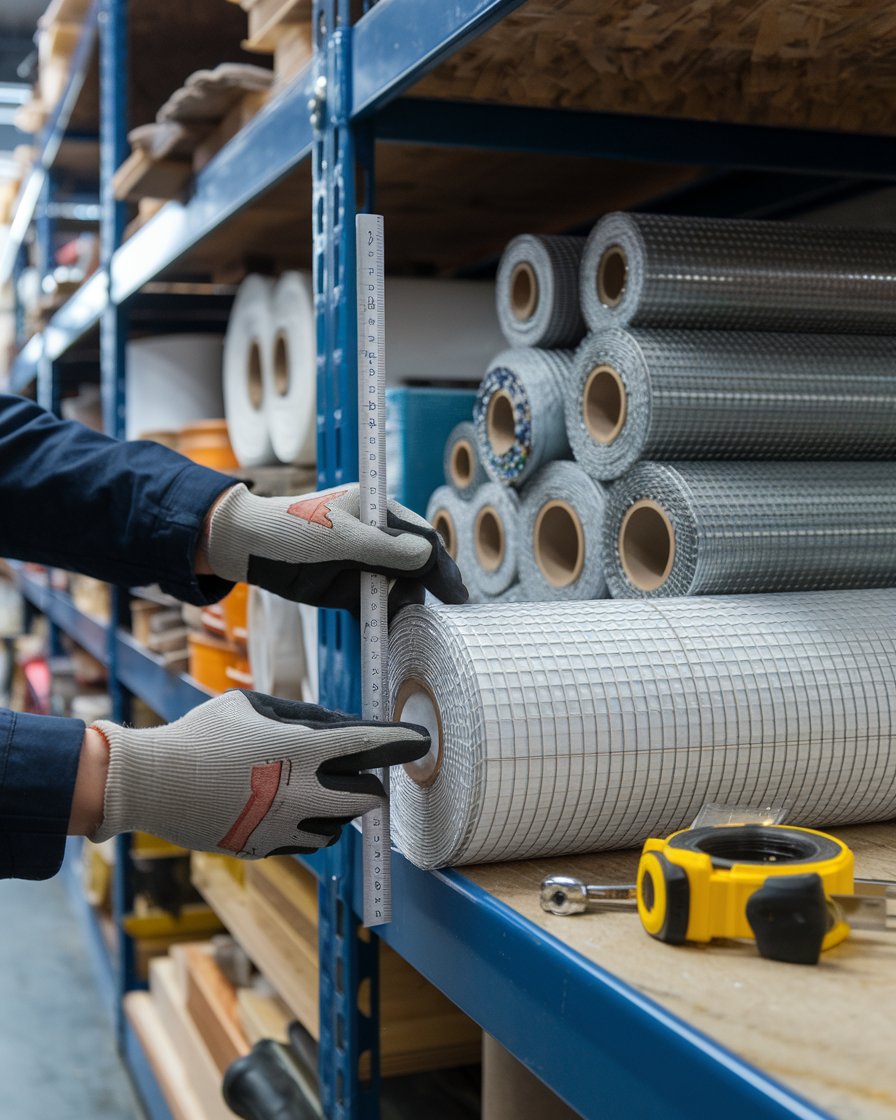Introduction
Hardware cloth is a crucial material in many home improvement and outdoor projects, thanks to its durability and versatility. Made from metal such as galvanized or stainless steel, hardware cloth is used in a variety of applications, ranging from fencing to pest control. The mesh is made by either welding or weaving wire, resulting in a strong and rust-resistant material that can withstand outdoor elements. Whether you’re working on a DIY project or a larger construction task, choosing the right type of mesh is essential for ensuring long-lasting results.
This material can be found in various sizes and wire diameters, making it adaptable for many purposes, from building a chicken coop to constructing heavy-duty filters. Additionally, the zinc coating on galvanized hardware cloth offers excellent resistance to corrosion, making it ideal for outdoor use. Understanding the specific material and gauge of wire is vital when selecting hardware cloth for your next project.
Key Takeaways
Hardware cloth is made from metal like galvanized or stainless steel, offering resistance to rust and corrosion, making it perfect for outdoor use.
Welded hardware cloth provides superior durability due to the fusion of metal wires, which helps it withstand pressure and environmental conditions.
Corrosion-resistant coatings on hardware cloth, such as zinc, enhance its longevity in various weather conditions, ensuring its long-lasting performance.
Hardware cloth is ideal for protecting chicken coops, as its tightly woven design prevents predators like rodents from entering.
Choosing the right size and gauge of hardware cloth is crucial for specific applications, with smaller mesh sizes being effective for pest control.
Woven and welded hardware cloth offer different advantages, with woven being more flexible, while welded provides more strength and stability.
Understanding Hardware Cloth: What It Is and How It’s Made
Hardware cloth is a versatile material commonly used in various home improvement and outdoor projects. It’s made from strong metal, often galvanized steel or stainless steel, to resist rust and corrosion. The process of making hardware cloth involves either weaving or welding metal wire to create a mesh that’s durable and long-lasting. The hardware cloth is made in different sizes and strengths, which makes it ideal for everything from small DIY tasks to larger construction projects. Its durability allows it to withstand harsh weather conditions and pest damage, making it a preferred choice for outdoor uses like fencing and pest control.
Key Differences Between Welded Wire Mesh and Hardware Cloth
Material Composition
Welded wire mesh is typically made from thicker metal wires, such as stainless steel or galvanized steel, which are fused at every intersection. Hardware cloth, on the other hand, is often made from thinner wires and is available in both woven and welded formats, offering more flexibility in its applications.Construction Process
The process used for welded wire mesh involves fusing metal wires at every joint to create a rigid structure. This makes welded wire mesh highly durable, ideal for heavy-duty tasks like fencing and reinforcement. Hardware cloth, particularly in its woven form, uses an interlacing technique, which creates a more flexible mesh that can be shaped to fit different surfaces.Strength and Durability
Due to its thicker wire and welding process, welded wire mesh is stronger and more rigid compared to hardware cloth. It can endure higher levels of stress and pressure, making it suitable for structural uses such as building enclosures or reinforcing concrete. Hardware cloth, while durable, is less rigid and is often used for smaller-scale projects, such as pest control or garden protection.Mesh Size and Applications
Welded wire mesh typically comes in larger mesh sizes, which makes it ideal for industrial applications like partitioning or reinforcing structures. Hardware cloth, however, offers smaller mesh sizes and is often used for finer tasks such as creating animal enclosures, protecting gardens, or filtering materials. The smaller openings make it more effective at keeping out pests and rodents.Flexibility and Usage
While welded wire mesh is better suited for heavy-duty and industrial uses due to its rigidity, hardware cloth is more versatile for DIY and residential projects. Its flexibility allows it to be molded or cut into different shapes, making it ideal for various home improvement projects like securing chicken coops or covering vents.Resistance to Corrosion
Both welded wire mesh and hardware cloth offer corrosion resistance, especially when made from galvanized or stainless steel. However, hardware cloth, particularly galvanized varieties, can come with additional zinc coatings, making it more suitable for outdoor uses where exposure to moisture is common.
The Welding Process and Durability of Hardware Cloth
The welding process used to create hardware cloth plays a significant role in its strength and durability. Welded hardware cloth is made by fusing metal wires at each intersection, which helps the mesh maintain its shape under pressure. This process ensures that the hardware cloth can withstand harsh environmental conditions, making it perfect for outdoor use. The welded design also enhances its resistance to rust and corrosion, especially when galvanized or zinc-coated. When choosing hardware cloth for heavy-duty applications, the welded type offers more strength compared to woven wire, which can tear more easily under stress.
Corrosion Resistance in Metal Hardware Cloth
One of the key benefits of hardware cloth is its ability to resist corrosion. Many types of hardware cloth, particularly galvanized and stainless steel options, come with a protective coating that guards against rust, making them ideal for outdoor projects. This corrosion resistance ensures the material remains long-lasting, even when exposed to moisture, dirt, or extreme weather. When selecting hardware cloth, it’s important to consider the environment in which it will be used, as materials like aluminum or zinc-coated wire may provide additional protection in specific conditions.
Exploring the Uses of Hardware Cloth in Chicken Coops
When it comes to protecting a chicken coop, hardware cloth is a top choice. Its tightly woven design makes it more secure than regular chicken wire, preventing predators like rodents from entering. The metal used in hardware cloth ensures that it can withstand gnawing and tearing, which is essential for keeping your chickens safe. Hardware cloth is also resistant to rust and corrosion, ensuring that it lasts longer even in outdoor environments. Whether you are building a new chicken coop or reinforcing an existing one, using hardware cloth will provide you with peace of mind, knowing that your chickens are well-protected.
Case Study: Protecting Chicken Coops with Hardware Cloth – A Real-Life Example
A small farm in Virginia faced persistent challenges with predators breaking into their chicken coops. After losing several chickens to raccoons and foxes that could easily tear through standard chicken wire, the farm decided to reinforce their coops using galvanized hardware cloth. They opted for 1/4-inch mesh, known for its tightly woven structure, which effectively blocked even the smallest rodents like rats and mice.
Within weeks, the farmers noticed a dramatic decrease in predator incidents. The galvanized hardware cloth, resistant to rust and corrosion, held up against the region’s harsh weather, including heavy rainfall. The farm also saw the long-term benefit of investing in this durable material, as they had fewer repairs and maintenance tasks compared to their previous setup with standard chicken wire. This case shows how choosing the right mesh size and material can significantly enhance protection and extend the lifespan of chicken coops.
How Hardware Cloth Protects Chickens from Predators
Using hardware cloth in a chicken coop provides superior protection from predators like foxes, raccoons, and rodents. Unlike regular chicken wire, which can tear easily, hardware cloth is much more resilient, preventing animals from gnawing through the material. The tightly woven wire also ensures that even small pests like mice can’t slip through the openings. Galvanized hardware cloth is ideal for this application because it’s resistant to rust and corrosion, meaning it can withstand outdoor weather without weakening over time. This durability ensures that your chickens remain safe from harm, even in harsh conditions.
Choosing the Right Size of Hardware Cloth for Chicken Coops
When it comes to securing your chicken coop, the size of the hardware cloth’s openings is a crucial factor. Smaller openings, such as those found in 1/4-inch mesh, are ideal for keeping out smaller predators like rats and mice. For larger animals, a 1/2-inch or 1-inch mesh may suffice. The size you choose depends on the level of protection needed and the type of predators in your area. Additionally, the gauge of the wire affects the hardware cloth’s strength, with thicker wires providing greater durability. Choosing the right size and gauge will ensure your chicken coop remains predator-proof.
Types of Hardware Cloth: Choosing the Right One for Your Project
There are various types of hardware cloth available, and choosing the right one depends on your specific needs. Woven hardware cloth is more flexible, making it suitable for projects where you need a material that can bend or fit into irregular spaces. On the other hand, welded wire mesh is stronger and maintains its shape better, which makes it ideal for heavy-duty projects like garden fencing. The gauge of the wire and the size of the openings also play a crucial role in determining which type of hardware cloth is best for your task. Understanding the different types will help you choose the most suitable one for your project.
Woven vs. Welded Hardware Cloth: Key Differences
Woven and welded hardware cloth are two common types used for various projects, each offering unique advantages. Woven hardware cloth is created by interlacing metal wires, making it more flexible and easier to mold into irregular spaces. However, it may be less durable than welded wire, which is known for its strength and rigidity. Welded hardware cloth is made by joining metal wires at their intersections, which ensures that it holds its shape better over time. Depending on your project, such as DIY garden fencing or rodent-proofing, choosing between woven and welded hardware cloth is crucial for long-lasting results.
How to Choose Hardware Cloth Based on Gauge and Material
The gauge and material of hardware cloth play an essential role in determining its effectiveness for your project. A lower gauge number means thicker wire, which offers more strength and durability. Thicker hardware cloth is better suited for heavy-duty applications like fencing or cages, while thinner wire may work well for smaller tasks. Additionally, hardware cloth can be made from materials like stainless steel, aluminum, or galvanized steel, each offering different levels of resistance to rust and corrosion. Selecting the right gauge and material ensures your hardware cloth performs optimally for the task at hand.
“Quality means doing it right when no one is looking.” – Henry Ford
Size and Weave: Key Factors in Hardware Cloth Selection
The size and weave of hardware cloth are important considerations when choosing the right material for your project. The size of the openings in the mesh will determine its effectiveness in keeping pests out or allowing air and light to pass through. For instance, smaller openings are ideal for projects like rodent-proofing, while larger openings might be better for garden fencing. The weave of the hardware cloth, whether it’s woven or welded, affects its durability and resistance to damage. Woven hardware cloth is often more flexible, while welded versions are sturdier and more resilient to wear and tear.
The Importance of Mesh Size for Specific Applications
The mesh size in hardware cloth directly impacts its performance in various applications. For instance, smaller mesh sizes are ideal for pest control, as they prevent small animals like rodents or insects from entering protected areas. Larger mesh sizes work better for ventilation or garden projects where airflow is essential. The size of the openings in the mesh should be chosen based on the specific task you’re working on, ensuring that it fits your needs effectively. Understanding the different mesh sizes helps you make an informed choice, ensuring your project’s success and durability.
The Role of Weave in Hardware Cloth Performance
The way hardware cloth is woven or welded plays a significant role in its overall performance. A tight weave offers more strength and resistance to wear and tear, making it ideal for outdoor projects that require durability. In contrast, looser weaves might be easier to work with but may not provide the same level of protection. Woven hardware cloth can be more flexible, which is useful for wrapping around irregular surfaces, while welded wire provides more stability. Selecting the right weave is important to ensure that your hardware cloth performs as expected for your particular application.
Conclusion
In conclusion, hardware cloth is an incredibly versatile material that can be used for a variety of applications, from home improvement to outdoor projects. Whether it’s woven mesh or welded wire, the strength and durability of hardware cloth make it a reliable choice for tasks like fencing, chicken coops, and even more specialized projects in the food industry or construction. Its resistance to rust and corrosion ensures that hardware cloth can withstand outdoor elements, making it a long-lasting solution for both DIY enthusiasts and professionals.
When choosing the right hardware cloth for your project, it’s important to consider factors like the gauge of wire, the mesh material, and the specific application you need it for. Whether made from heavy aluminum or galvanized steel, hardware cloth offers various sizes and types to meet your project needs. With its resilient, rust-resistant design, hardware cloth remains a top choice for durable and effective solutions.













